Until I started getting interested in the outdoors and adventures (in my late 20s), I’d never even heard of the term Wild Camping (also sometimes called stealth camping or fly camping). But now it’s one of my absolute favourite outdoor activities! It’s free, not particularly strenuous, and really connects you to nature. In this wild camping UK guide, I’ll cover everything you need to know about etiquette, where to go wild camping in the UK, and reveal my wild camping packing list.
Do you know what the biggest barrier is to wild camping for the first time? It’s simply getting over the fear of being caught!
When starting out as a stealth camper, it can feel really exposing and vulnerable, kipping out in the wild. You worry about being seen or being asked to move on in the middle of the night.
With the information below, I hope to ease your worries. With an understanding of good wild camping UK practices, there is no reason why your night outdoors shouldn’t go smoothly and unnoticed. I’ll cover everything you need to know to find the best wild camping spot, how to pitch safely and how to ensure you don’t get caught.
YOU MIGHT ALSO BE INTERESTED IN READING:
- How to pack a hiking backpack like a pro
- 7 tips for staying warm when camping
- 19 Fun camping games for adults
My Wild Camping UK Jounrey….
If you are new to this blog, I’m Bex Band – a full-time UK adventurer and founder of the women’s adventure community Love Her Wild. I’m on a mission to make the outdoors and adventures easy. You can read more about me here.
My first experience of wild camping was when I decided to do my Summer Mountain Leader qualification. Doing the qualification required you to have experienced wild camping in National Parks. I also hiked 1000km on the National Trail where I was stealth camping most nights.
These days, I make a habit of wild camping regularly. As I don’t live near National Parks, this means finding suitable woods and fields nearby to pitch a tent or bivvy bag overnight. I also wild camp as a family – with a baby or toddler in tow!
If you have any questions, please use the comments box below. And for ongoing tips and inspiration on camping and adventure, make sure you follow me on Facebook and Instagram. Don’t forget to grab a copy of my best-selling adventure memoir – Three Stripes South.
What is wild camping and why the fuss?
Wild camping is simply camping somewhere that is not on a designated camping site.
Sometimes, there is a need for a wild camp. For example, if you are on a multi-day hike far away from campsites and accommodation options.
Most people choose to wild camp, though, because it adds to the outdoor experience. There really isn’t anything quite like waking up right in the heart of nature. Or sleeping under stars miles from the nearest light.
The biggest deterrent for wild camping is probably the idea of needing to carry all your gear with you. And also coping with no facilities – no taps, showers or toilets. Alongside the feeling that you might get caught out in the middle of the night.
These are easy to get used to, though. Choosing the right gear and learning wild camping etiquette will make the process easy and stress-free.
Is Wild Camping Illegal in the UK?
The only places you can legally wild camp in the UK are in Dartmoor and Scotland. You may have seen the uproar in 2023 when Dartmoor almost lost most of its wild camping status….thankfully this was overturned!
However, despite wild camping not technically being legal, it is tolerated almost entirely across the UK as long as you follow these basic rules:
- don’t camp if the land is obviously private, there are houses/farms within sight or if you need to jump a fence (unless you ask for permission first)
- be quiet and respectful
- pitch late and leave early, and never stay more than 1 night
- follow Leave no Trace – more on that below
- don’t light fires
There are some protected areas where you can absolutely not camp, and these are usually marked with no camping signs. For example, the New Forrest is an area that does not tolerate wild camping, and they have rangers who patrol at night to enforce this.
WIld camping in National Parks vs Local Natural Spaces
The way I see it is there are two types of wild camping.
The first is camping in the big National Parks (Lake District, Brecon Beacons, Peak District, etc). It is such commonplace to wild camp in these places that you don’t need to worry about being moved on as long as you follow the above rules.
The second type of wild camping is what I see as more ‘stealth camping’. This is camping in natural spaces that aren’t far from towns or villages or in smaller, less rural parks (such as the South Downs Way or a nearby hilltop). This requires being a bit more discrete and generally not being seen from any path.
Stealth camping can be just as fun and can provide a bit of time in nature right on your doorstep. Usually, this requires a bit more confidence, but once grasped it can open up a whole new world of adventure. In many ways, I find wild camping in urban areas easier to do without being spotted, as people don’t expect you to be there.
In National Parks, the chances are you’ll be seen by hikers, and, in some popular wild camping spots, you might even end up with another camper nearby. In your local woods or hill, though, this is very unlikely!
I’ve wild camped without disruption in parks, on rugby pitches and even in London!
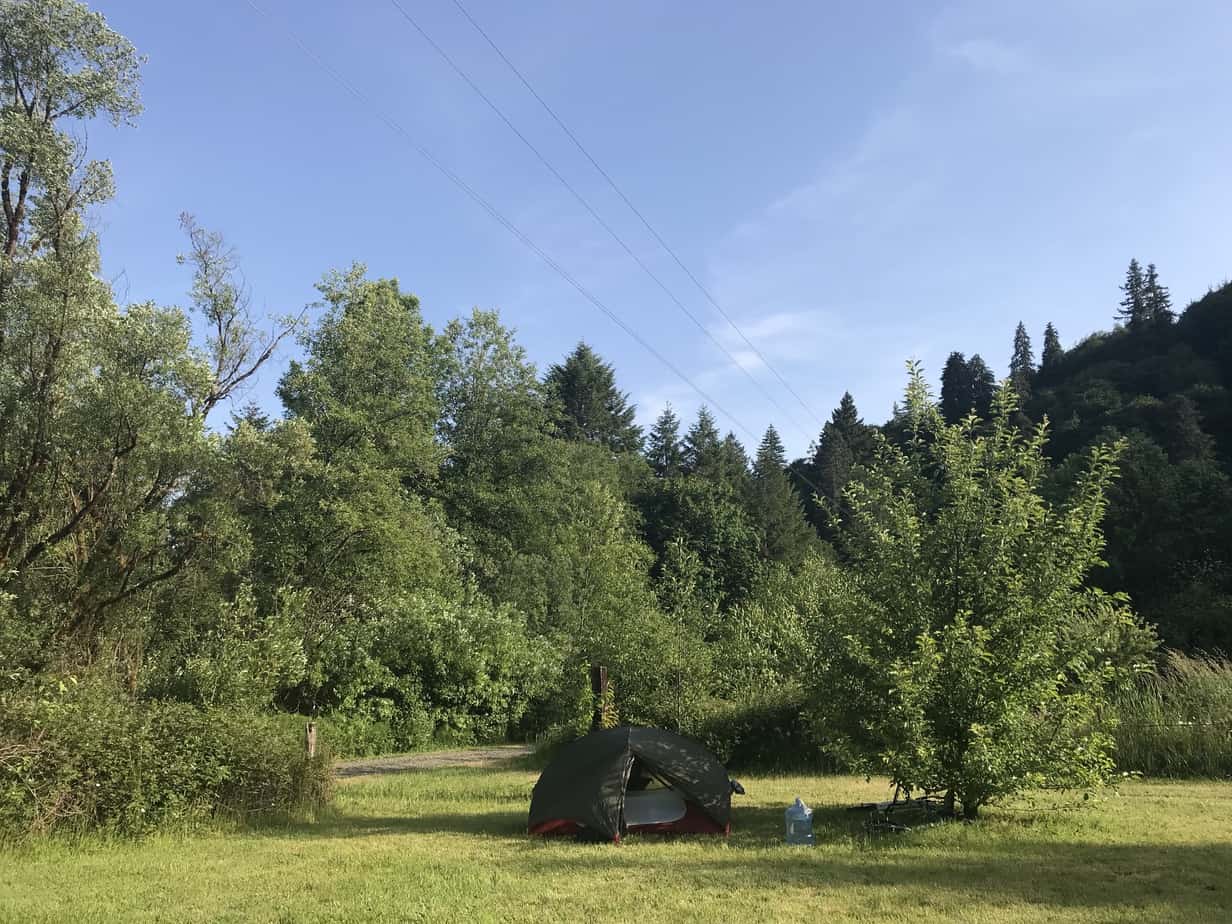
What happens if I get caught Wild Camping?
If you are wild camping somewhere near a town or village, you have to accept that there is a small chance you will be asked to move on by landowners.
This is not something I’ve experienced myself, although I’ve heard stories of others being moved on in the middle of the night. It’s all part of the adventure!
If it happens to try and reason with the person (who is most likely going to be the landowner) and reassure them you won’t leave a trace. If they are insistent – which they have every right to be – just move on and find another spot.
Mostly, though, it’s not something you need to worry about too much, I’ve been seen plenty of times, and nothing has happened.
Imagine if you were walking in the woods and saw a tent. Would you do anything? Probably not!
The first night you camp will probably feel a bit strange, but the more you do it, the easier it becomes and the more relaxed you feel knowing that you really can find a sleeping spot anywhere.
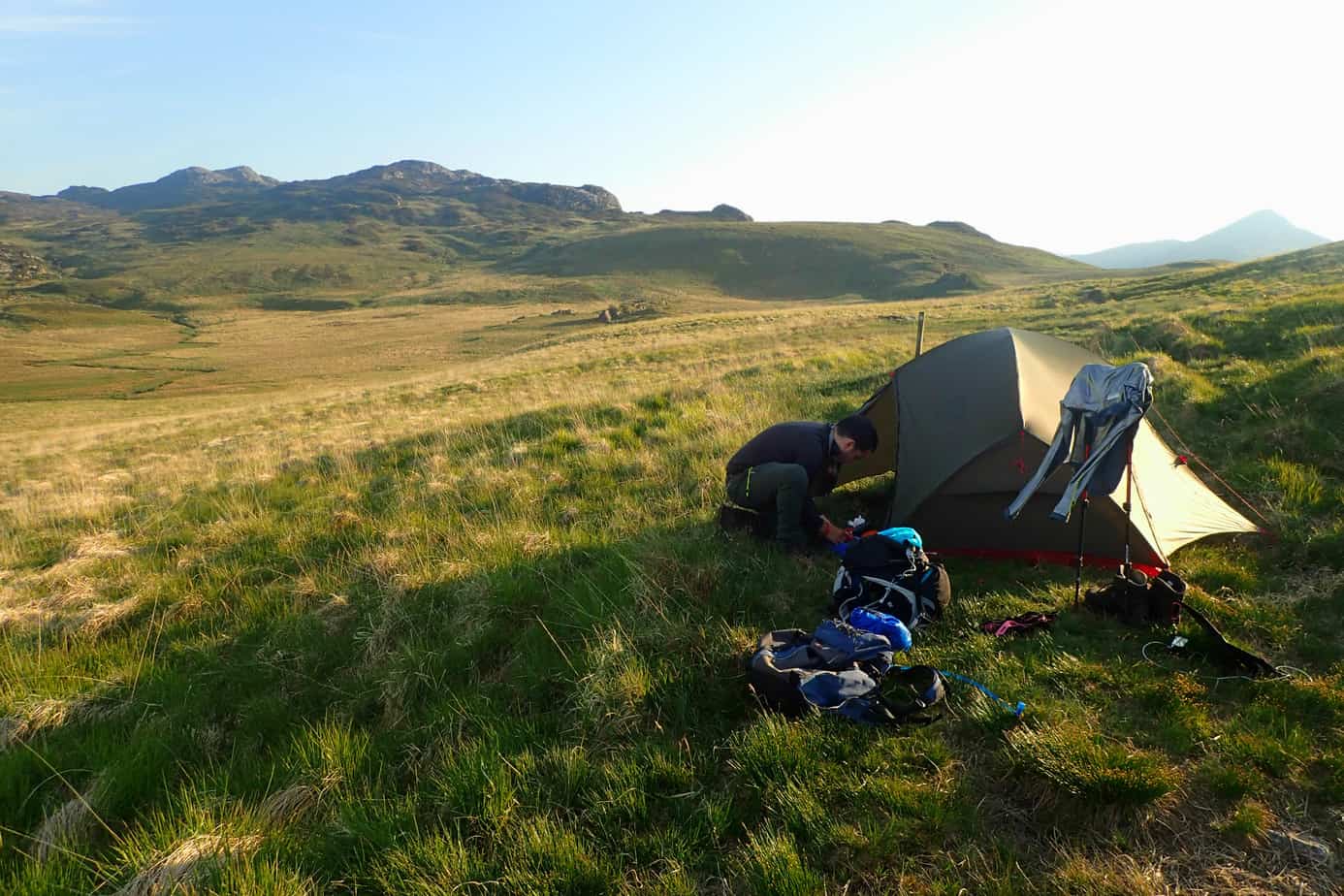
Where can you go Wild Camping in the UK?
For wild camping in the big National Parks, you don’t need to do too much planning in advance.
If looking for somewhere near a town or village, you can use Google Maps to look for green spaces or woodlands. If you don’t know the area, I’d suggest a recce during the day. Check that there are no fences and that there’s a quiet spot where you won’t be disturbed.
I’ve written some comprehensive area-specific guides to get you started:
- Wild camping Snowdonia
- Wild camping Lake District
- Wild camping Brecon Beacons
- Wild camping Peak District
- Wild camping Norfolk
- Wild camping Dorset
- Wild camping Kent
For more suggestions and ideas of where to head, I can really recommend getting a copy of Phoebe’s Smiths Britain’s Best Small Hill’s.
Using a tent vs a bivvy bag
There are 2 ways to wild camp. The first is using a tent. Your tent should be small and discrete (ideally a colour that won’t make you stand out and preferably no bigger than 3-man).
My favourite wild camping tent is the MSR Hubba Hubba NX.
Alternatively, you can use a bivvy bag. A bivvy bag is effectively a waterproof bag for your sleeping bag. You lay it down in a quiet spot and sleep out under the stars with no cover!
If you want to try using a bivvy bag check out my bivvy bag camping guide.
If you are still undecided if you should take the bivvy bag or the tent, then this short film might help:
How to choose a wild camping spot
When I look for a wild camp spot, I’m searching for the following:
- flat spot (nothing worse than sleeping on a slope)
- quiet and out of view (especially important if in a less rural area)
- big enough space to fit my tent or bivvy bag
- not in the middle of a path or space that people will be walking through
- soft underground (not too many rocks or roots)
- not at the bottom of a slope that may flood if it rains
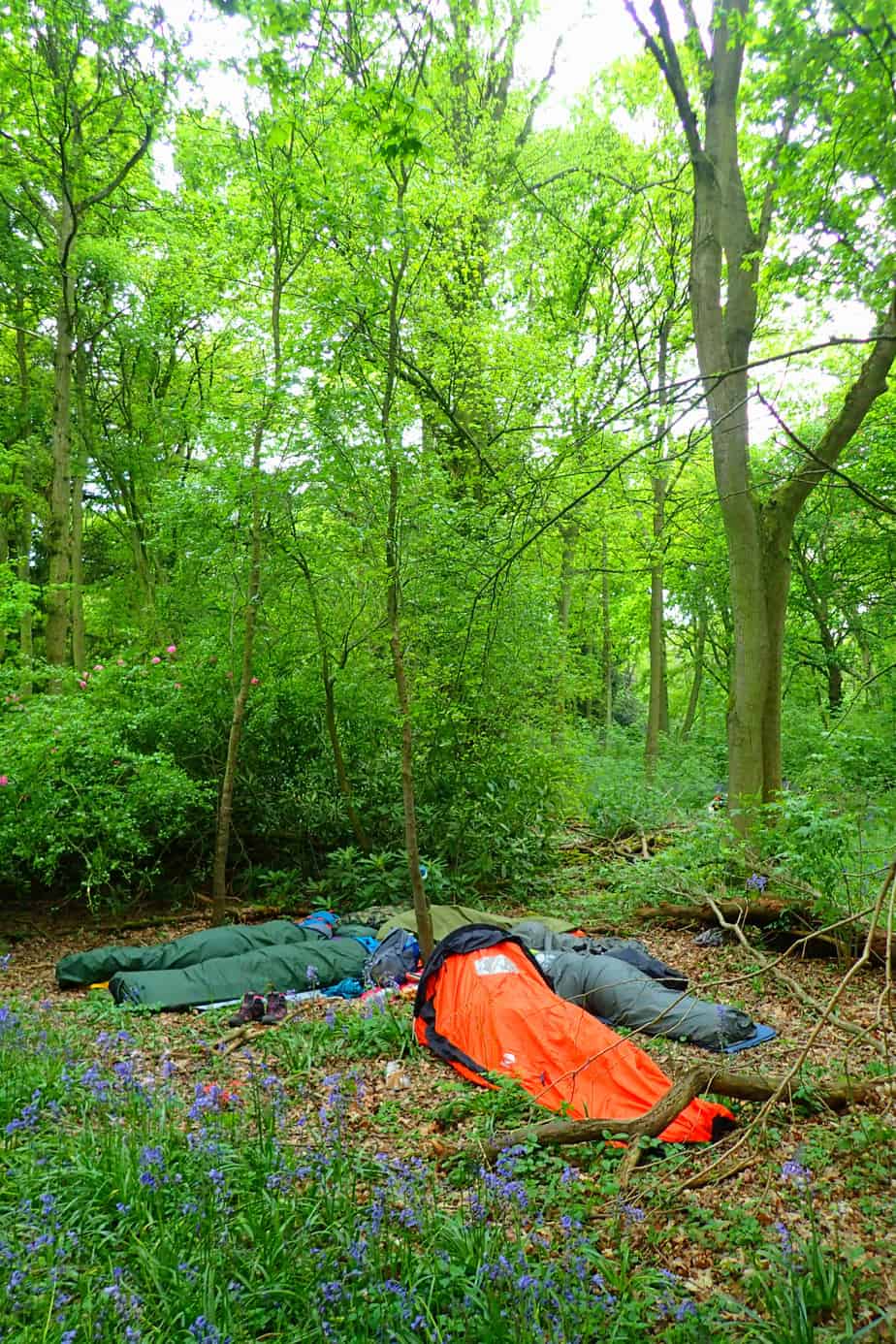
Wild camping kit list
I would say the most important thing to consider when considering your wild camping equipment is making sure you have plenty of warm clothing and waterproofs in case it does rain on you!
People often underestimate how cold it can get when camping. Make sure you have lots of layers, a warm hat and clothes. Read my guide to staying warm when camping – you can follow some basic rules to help you keep the heat in. Once you get cold camping, the only way you are going to warm up is to get up and move to generate body heat.
The other essential bits of wild camping kit include:
Tent
MSR Hubba Hubba (either the 2 person or 1 person) is not cheap, but I have had this tent for years and it really is the Ferrari of the tent world. For a cheaper alternative, I can really suggest getting a Vango Nevis 200….I’ve been in a serious storm with this thing and water never gets in.
or
Bivvy bag
If you don’t want to invest in a bivvy bag until you’ve tried it then just use a Survival Bag. You get a lot of condensation, though, so they are only good for one night! I’d recommend a Alpkit Hunka bivvy bag for a simple but effective bit of kit.
Roll mat
I use a Thermarest Neo Air, which is very luxurious, although a cheap roll mat will also do. If you are sleeping on soft ground (grass or woodland), you could even get away without one, especially if it is overnight.
Sleeping bag
My Tundra Pure and Dry 0 is an epically warm and lightweight sleeping bag. As a cold sleeper, I found a good quality sleeping bag makes all the difference. There’s no need to spend so much starting out, though. A basic Vango sleeping bag will get you through a summer’s night.
Other wild camping equipment you will need:
– Headtorch (I use the Petzl Tikkina) in case you need to go for a pee in the night. Alternatively, you can just use the torchlight on your phone.
– Water bottle
– Food and snacks
– Rucksack to carry your gear (I use Osprey Eja 38)
– Phone (as a safety precaution even if you don’t intend to use it)
– Anker Power Bank as a backup charger for your phone
A few luxury items worth considering, especially if you don’t have far to carry your kit: book, journal and a small pillow.
If you want to add a little bit of fun to your camping trip, check out my handy guide with 100+ camping games and challenges for adults: CAMPING GAMES FOR ADULTS.

Make it comfortable
Being warm and fed has the biggest effect on how much you will enjoy your overnight camp.
Being well fed is easy to take care of. Staying warm, though, can be a little trickier. Check out my guide to staying warm when camping for my top tips.
Second to food and warmth for me is having a comfy pillow, which is why I always take my travel one with me to ensure a good night’s sleep.
If you get really cold and weight isn’t a consideration, you could consider using a heated sleeping bag.
Safety when wild camping
As with all adventures, make sure you tell someone your rough plan and where you intend to go.
There are very few dangers when it comes to wild camping. Pitching under trees comes with a risk of falling branches – especially in high winds or storms.
In wet weather or cold, a wet kit can be a killer as it leads to hypothermia very fast.
As for being a female on your own, logic says you will be fine. If this is something that really bothers you, then why not simply head out with a friend? You could camp together, for reassurance, within a short distance from each other. Knowing there is someone nearby can be a real comfort.
There are groups you can get involved with that organise wild campouts and where you can connect with others if you’re looking for a fly camping buddy:
- Love Her Wild (women only)
- Explorers Connect
- The Yes Tribe
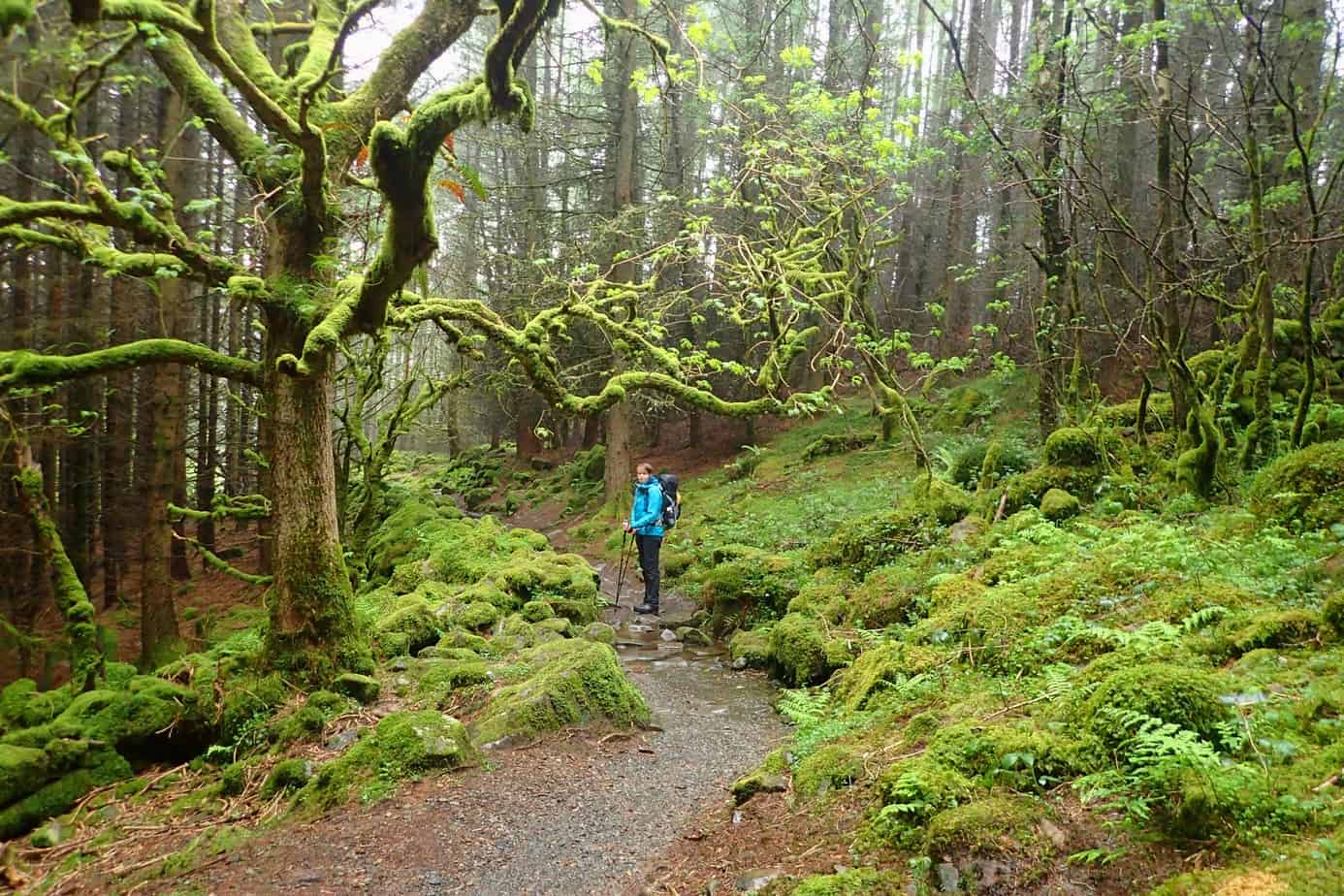
Leave no trace!
Following these simple rules ensures you do the minimal damage possible to our natural spaces when you wild camp.
- Pick a spot that requires the least amount of disruption (moving rocks and stones) while avoiding trampling on flowers or plans
- Take away all your litter
- Don’t light fires, and use a camping stove if you do decide to cook
- Follow the toileting rules below
- Never wash in the streams or rivers with soaps or pollute the area with non-eco-friendly products
- Be quiet
How do you go to the toilet when wild camping?
This is a big concern for first-time wild campers, but it’s not hard to get to grips with it once you’ve tried it a few times.
For wee’s, you just need to pick a bush out of the way from any paths where someone may see you.
For poo’s, you need to dig a hole in the ground using a camping shovel (like these ones). Make sure the hole is at least 15cm deep, at least 30 meters away from any water sauce (so you don’t contaminate the water) and covered up entirely when you finish.
Bring a hand sanitiser with you to clean your hands afterwards.
All tissue paper and sanitary items need to be carried away with you. The cleanest way to do this is to use eco nappy/poo bags.
Top tips for wild camping UK
Hopefully, you are all set to head out into the UK countryside for a wild camp! Before you head out, check out my final top tips for wild camping UK:
- For your first-ever time wild camping, I’d recommend having a plan B! A get out in the middle of the night should you want to bail – leave your car nearby or have an all-night taxi number to hand
- If you are nervous about going alone, then go with a group first time. For women, you can post in the Love Her Wild adventure group, or the Yes Tribe regularly organise group wild campouts.
- If you want to try an even ‘wilder’ experience, you could leave the tent behind and opt for a bivvy bag instead. Check out this guide to bivvy bag camping for more advice
- Set a date and commit to making it happen. The first wild camp is the hardest!
Other relevant posts to help you get ready:
- How to pack a hiking backpack like a pro
- 7 tips for staying warm when camping
- 19 Fun camping games for adults
I hope you found this Wild Camping UK guide helpful. Good luck with your first stealth or fly camping experience! I’d love to hear how it goes in the comments box below. Please do also ask questions if you have any.
Follow me on Facebook, Twitter and Instagram. I share all my advice and tips for free. Most of my blogs are written from cafes so if you’d like to buy me a cup of tea as a thanks, you can do so via Ko-fi.

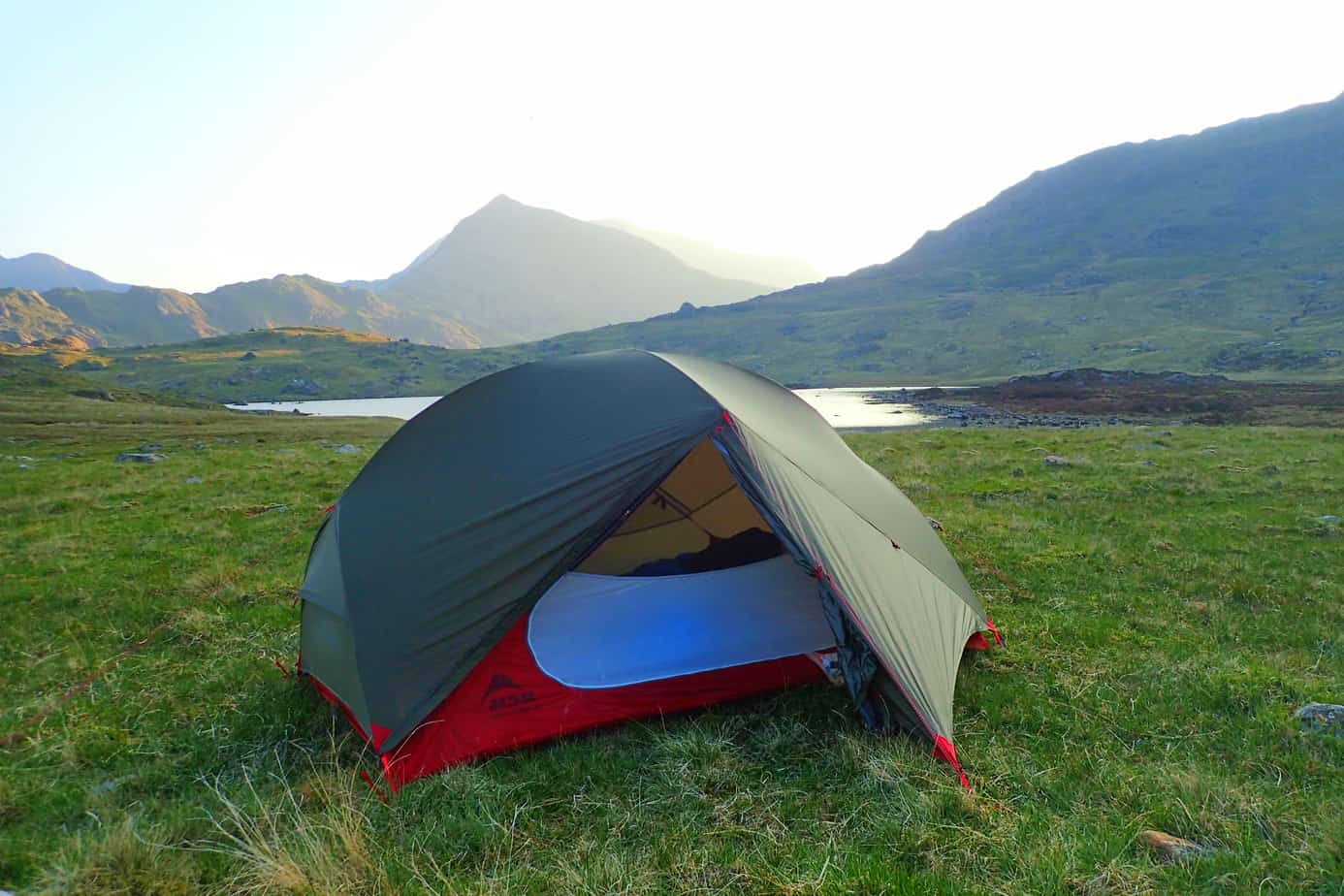

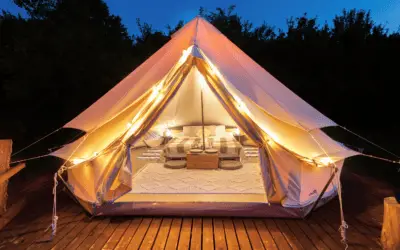

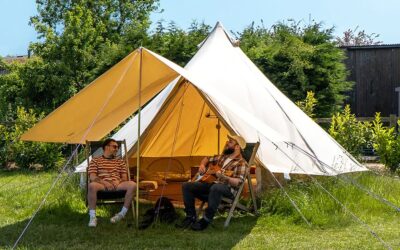
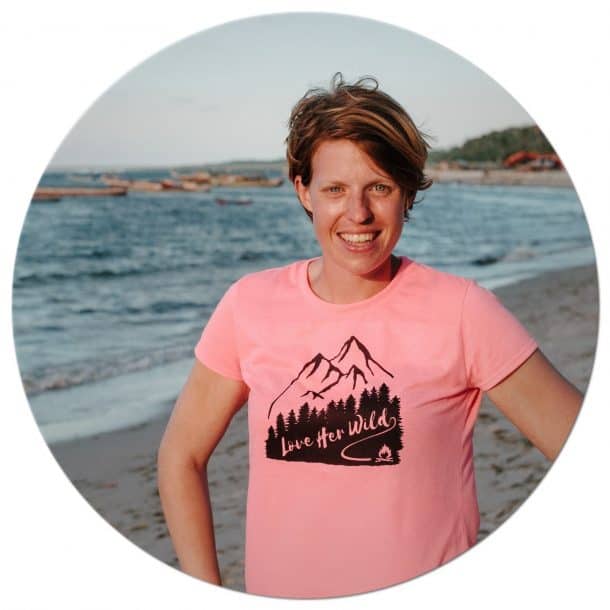
Hi Bex,
Thanks for the wild camping article. Very detailed and I’m formative.
I did my first wild camp this week in London’s Richmond Park. The highlight was seeing a badger (never seen one before).
I see you like to list you favourite equipment, so do I so here goes.
Bivy – RAB Unishelter
Bag – RAB 700 Ascent
Mat – neoair xtherm
Pack – Osprey talon 33
Congrats on your website and your ventures. (I’m one of those middle-aged white males you mentioned in another blog but I think what you’re doing is great)
Chris – London U.K
Thanks for the gear suggestions! And wow….spotting a badger is really special!
Hi Bex iam looking for any abandoned cottages in the Highlands Scotland.any suggestions.practising hermit.100% dedicated.thankyou.Daniel
Hi Bex
Loved reading this it really has given me confidence to head out. I’m cycling from Notts into the Peak district (Dark Peaks) and wild camping for the first time. Your Blog has eased my concerns in regards to camping in the National Parks
Thank you
That’s so lovely to hear, thank you. And enjoy your adventure – it sounds brilliant!
Thanks for all the tips Bex. I’m currently building up equipment and courage to give wild camping a go! Your article has certainly helped boost my confidence a bit, thanks.
Well done Richard! The first wild camp is the toughest one and can be a bit nerve-wracking. It really is worth it though.
Good luck!
Hi Bex, once lockdown is lifted I lan to take my son to the Peak District for one night of wild camping. All I need left to buy though, is a two person tent :). Great article and very informative.
What a great thing to do with your son! I hope you have a great time 🙂
I’d suggest a 3 man tent to give yourself some room. I plan on taking my son out soon as well.
Hi Bex.. Wild camping is something I’m new at but I like to get away from people because people cause problems 😁. However while camping for me is kind of new so I’m wondering whether there is a map or suggested places in North Yorkshire. Unfortunately I don’t drive now. Simple fact is I don’t have a vehicle.. so for me it would have to be train or bus which is all well and good.. but having a plan b while traveling on a bus or by train wouldn’t be very good if I had to leave in the middle of the night. Are there any areas we are allowed to come where we’re not exactly trespassing on somebody’s property.. I don’t know much about areas that people do go wild camping but I do wish to stay away from campsites and people.. you’ve heard the expression get one with nature and I’m not wishing to use it but that is exactly what I wish.. it would just be for a weekend. Obviously, I’m searching for locations places and then I would have to plan of how to get to these locations as I live in North Yorkshire Thornaby. So if there’s any advice for amateur level wild camping places it would be gratefully appreciate it if you could point me in the right direction.. I’d rather not trespass but I am sure there are places in the UK that you can picture tent as long as you look after the area around you.. is this at all possible.. let’s see for instance I wanted to head to the lakes.. can you not just picture tent more-less anywhere that isn’t private property or is much of the lake District private property now?
So any information websites or links will be appreciated as I would like to plan months in advance.. if you need my email address I’d be happy to email it to you so you could send me any information or advice thank you for taking the time to read my comment it is appreciated best wishes, Shaun